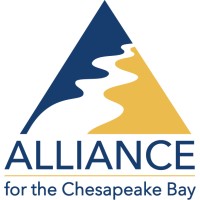Department of Natural Sciences
Food Day
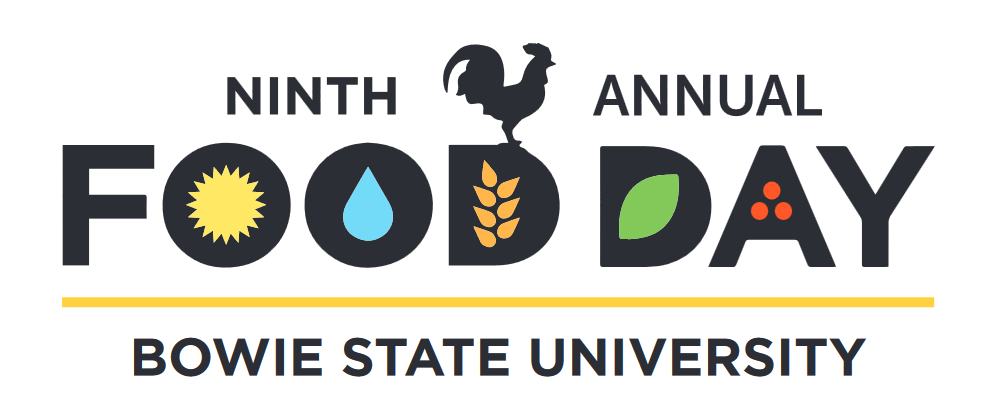
The 9th Annual Bowie State Food Day Symposium
Smart Agriculture: A Paradigm Shift in Food Production for a Healthy and Sustainable Future
- Thursday, 10/27/2022, 8 a.m.- 2 p.m.
- BSU Student Center, Wiseman Ballroom
- Bowie State University, 14000 Jericho Park Road, Bowie, MD 20715-9465 (Directions)
Join Bowie State University as we explore the next frontier of Smart Agriculture. The summit will bring together a diverse group of stakeholders for information, discussion and networking, to increase food production in the Chesapeake Bay region and beyond.
Global agriculture-based food systems produce significantly less than required to accommodate population growth protections. Farmers will need to produce about 70% more food to meet the demand of the predicted 10 billion global population by 2050. A radical transformation is needed to become sustainable and food crisis reliable. The practice of the modern-day agricultural production system must evolve to fulfill future food demands. Technologies such as hydroponics, aquaponics, vertical agriculture and precision agricultural technologies are key areas that can improve global agricultural productivity.
What You Will Learn
- Global Food Security: Challenges and policies
- Smart Agriculture: Solutions to food security challenges
- Current and ongoing research on smart agriculture at Bowie State University and other regional research agencies
Schedule
8:00 a.m. – 9:45 a.m. Exhibits and Student Posters
Featuring local food productions, nutritionists, healthy food advocates and policy makers
9:45 a.m. – 10:15 a.m. Welcome
Anne Osano, Ph.D, Professor of Biology, Bowie State University & Coordinator, BSU Annual Food Day Symposium
Aminta Breaux, Ph.D, President, Bowie State University
George Ude, Ph.D, Chair, Department of Natural Sciences, Bowie State University
George Acquaah, Ph.D, Dean, College of Arts and Sciences, Bowie State University
Carl Goodman, Ph.D, Provost & Vice President Academic Affairs, Bowie State University
Moderator: Jabari Walker, Sustainability & Energy Coordinator/Insurance Manager, Bowie State University
10.15 a.m. – 11:00 a.m. Keynote Address: Challenges Facing Food Security in the Context of Projected Population Increase
Keynote Speaker: Mamatha Hanumappa, Ph.D, Project Specialist of Center for Urban Research, Engagement and Scholarship, University of the District of Columbia
Moderator: Emma Gregory, Equity & Inclusion Projects Specialist, Alliance for the Chesapeake Bay
11:00 – 1:00 p.m. Round Table Discussion/Keynote: BSU Smart Agriculture: Possible Solution to Food Security Challenges
Lead/Speaker: Anne Osano, Ph.D, Director, Smart Agriculture Program, Bowie State University
Healthy Cooking for TV Production – Lunch by BSU Dining Services
Moderator: Otis Thomas, Ph.D, Chair, Department of Communication, Bowie State University
Student Poster Awards
1:00 p.m. – 2:00 p.m. Panel Discussion: Smart Agriculture: A Special Afternoon Forum by the BSU Natural Sciences Department
The forum will focus on a discussion of the research themes in Smart Agriculture
Moderator: George Ude, Ph.D, Chair, Natural Sciences Department, Bowie State University
2:00 p.m. Adjourn
2:00 – 3:15 p.m. BSU Aquaponics and Hydroponics Systems Greenhouse Tour, CNSMN, Room 3163 (Optional)
Presenters
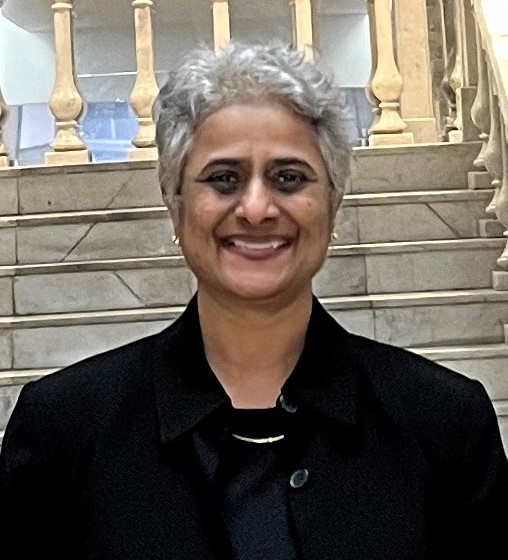 Dr. Mamatha Hanumappa is project specialist for specialty and ethnic crops in the Center for Urban Research, Engagement and Scholarship at the University of the District of Columbia (UDC) in Washington DC. UDC is the only urban land-grant university in the USA, and addresses global challenges of urbanization and urban food and nutritional security through research and education in agroecology, sustainable urban development and multifunctional urban landscapes. Mamatha teaches a course in agroecology, and conducts research and community outreach in areas related to improving food and nutritional security in a changing climate. She coordinates UDC’s Professional Science Masters program in Urban Agriculture in addition to serving as the state coordinator for grant programs administered by the U.S. Department of Agriculture. Mamatha has research experience in a wide range of topics including urban agriculture, climate change adaptation, natural resource management, plant biotechnology and bioinformatics. She received a Ph.D. in Horticulture from the University of Maryland, USA., worked as a postdoctoral fellow at prestigious laboratories in the US, Japan and South Korea, and has provided consultancy services to several organizations including the World Bank. Mamatha is a recipient of the prestigious Fulbright U.S. Scholar award to Kazakhstan for academic year 2021-2022.
Dr. Mamatha Hanumappa is project specialist for specialty and ethnic crops in the Center for Urban Research, Engagement and Scholarship at the University of the District of Columbia (UDC) in Washington DC. UDC is the only urban land-grant university in the USA, and addresses global challenges of urbanization and urban food and nutritional security through research and education in agroecology, sustainable urban development and multifunctional urban landscapes. Mamatha teaches a course in agroecology, and conducts research and community outreach in areas related to improving food and nutritional security in a changing climate. She coordinates UDC’s Professional Science Masters program in Urban Agriculture in addition to serving as the state coordinator for grant programs administered by the U.S. Department of Agriculture. Mamatha has research experience in a wide range of topics including urban agriculture, climate change adaptation, natural resource management, plant biotechnology and bioinformatics. She received a Ph.D. in Horticulture from the University of Maryland, USA., worked as a postdoctoral fellow at prestigious laboratories in the US, Japan and South Korea, and has provided consultancy services to several organizations including the World Bank. Mamatha is a recipient of the prestigious Fulbright U.S. Scholar award to Kazakhstan for academic year 2021-2022.Mamatha will present her work on urban agriculture and ethnic crops, and how they fit into climate smart agriculture. She will also talk briefly about other ongoing projects at UDC.
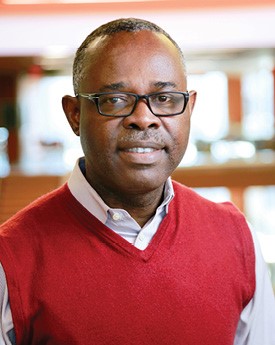 George Ude is a Professor of Biology and the Chair of the Natural Sciences Department at Bowie State University. He is the Activity Director of the Department of Education-funded Title III Course-based Undergraduate Research Experiences (CURE) Program at Bowie State University. Dr. Ude has been a pioneer and passionate ambassador for the use of discovery-based pedagogy to facilitate student learning and to augment faculty capacity, with the mission to instruct students in impactful ways. Dr. Ude is the Founder and Chairman of the Board of Trustees of the DNA Learning Center Nigeria, Godfrey Okoye University, a subsidiary of the Cold Spring Harbor Laboratory, DNA Learning Center, New York. The DNA Learning Centers specialize in providing hands-on laboratory and research training opportunities. They also build capacity to prepare teachers, students, and families to benefit from modern genomics and biotechnology innovations in agricultural, environmental, and medical research. Dr. Ude is a plant breeder and molecular geneticist. His research focuses on plant genomics, conservation and crop improvement. He also studies water and soil microbiomes. Dr. Ude is a leader in STEM education and a recipient of several unique awards in higher education, including the University System of Maryland Wilson H. Elkins Professor Award that recognizes and rewards outstanding teachers and leaders. Dr. Ude also contributes to the service of his profession through various avenues. He served as the inaugural Editor-in-Chief of the African Journal of Biotechnology from 2002 until 2017. Dr. Ude is also the founder of the International Society of African Biotechnologists and Bio-scientists (ISABB –www.isabbio.org), an organization devoted to promoting STEM on the African continent by enabling African Scientists in the diaspora to support Research & Development in Africa.
George Ude is a Professor of Biology and the Chair of the Natural Sciences Department at Bowie State University. He is the Activity Director of the Department of Education-funded Title III Course-based Undergraduate Research Experiences (CURE) Program at Bowie State University. Dr. Ude has been a pioneer and passionate ambassador for the use of discovery-based pedagogy to facilitate student learning and to augment faculty capacity, with the mission to instruct students in impactful ways. Dr. Ude is the Founder and Chairman of the Board of Trustees of the DNA Learning Center Nigeria, Godfrey Okoye University, a subsidiary of the Cold Spring Harbor Laboratory, DNA Learning Center, New York. The DNA Learning Centers specialize in providing hands-on laboratory and research training opportunities. They also build capacity to prepare teachers, students, and families to benefit from modern genomics and biotechnology innovations in agricultural, environmental, and medical research. Dr. Ude is a plant breeder and molecular geneticist. His research focuses on plant genomics, conservation and crop improvement. He also studies water and soil microbiomes. Dr. Ude is a leader in STEM education and a recipient of several unique awards in higher education, including the University System of Maryland Wilson H. Elkins Professor Award that recognizes and rewards outstanding teachers and leaders. Dr. Ude also contributes to the service of his profession through various avenues. He served as the inaugural Editor-in-Chief of the African Journal of Biotechnology from 2002 until 2017. Dr. Ude is also the founder of the International Society of African Biotechnologists and Bio-scientists (ISABB –www.isabbio.org), an organization devoted to promoting STEM on the African continent by enabling African Scientists in the diaspora to support Research & Development in Africa.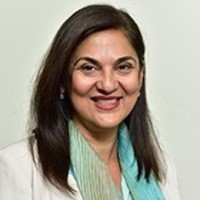 Samia Rab Kirchner makes, studies, and analyzes architecture that contributes to urban civic identity. She is currently tenured Associate Professor of Urban Design and Interim Chair of the Undergraduate Design Department at Morgan State University in Baltimore City. Her research and practice focus on the (trans)formative role of water in City Design, Urban Regeneration and Redevelopment. As an Equity Diversity and Inclusion expert and a trained Facilitator, she serves on the Board of Trustee of the Interfaith Partnership for the Chesapeake Bay and chaired the Leadership Committee of the Association of Collegiate Schools of Architecture (ACSA) In 2019-2020. She is also serving as Middle East Area Editor for the forthcoming Bloomsbury Global Encyclopedia of Women in Architecture, as Editorial Member of the Journal of Arabian Studies, as Desk Reviewer for ICOMOS on the UNESCO World Heritage List, and as Chair of the Morgan Internationalization of Education Task Force.
Samia Rab Kirchner makes, studies, and analyzes architecture that contributes to urban civic identity. She is currently tenured Associate Professor of Urban Design and Interim Chair of the Undergraduate Design Department at Morgan State University in Baltimore City. Her research and practice focus on the (trans)formative role of water in City Design, Urban Regeneration and Redevelopment. As an Equity Diversity and Inclusion expert and a trained Facilitator, she serves on the Board of Trustee of the Interfaith Partnership for the Chesapeake Bay and chaired the Leadership Committee of the Association of Collegiate Schools of Architecture (ACSA) In 2019-2020. She is also serving as Middle East Area Editor for the forthcoming Bloomsbury Global Encyclopedia of Women in Architecture, as Editorial Member of the Journal of Arabian Studies, as Desk Reviewer for ICOMOS on the UNESCO World Heritage List, and as Chair of the Morgan Internationalization of Education Task Force.In 2020, Dr. Kirchner began her research into geological agriculture (GeoAg) architecture and design methods. She received a grant from the USDA to host the first of its kind GeoAg architecture and engineering conference in 2021 featuring GeoAg research conducted at Morgan State University, including the design and development of a GeoAg Sustainability Bay Window, the design of the indoor GeoAg kitchen grow unit, and the design of a GeoAg Chicken feeder. She currently is researching GeoAg rooftop design and performance on the terrace at the Center for the Built Environment and Infrastructure Studies.
 With a BA in Finance from Morehouse College and MBA from Howard University, Richard C. Campbell has over 25-years’ experience as a management consultant for corporations and federal agencies like the US Army, USAID, and Peace Corps, along with Allstate, Ford, Nintendo, and Blue Cross Blue Shield.
With a BA in Finance from Morehouse College and MBA from Howard University, Richard C. Campbell has over 25-years’ experience as a management consultant for corporations and federal agencies like the US Army, USAID, and Peace Corps, along with Allstate, Ford, Nintendo, and Blue Cross Blue Shield.A 1994 accidental watermelon growing in a rock bed, led Campbell and his uncle to take a different look at rocks. In 2009, with 15-years of private research, Campbell sought the patents on what he called geological agriculture or GeoAg – the study of growing plants in rocks without soils and fertilizers. In 2015, Campbell was awarded 1 master patent with 14 claims over the process of cultivating plants in rocks. He formed the company To Soil Less Consulting and released the book River Stones Grow Plants in 2018 through Barnes & Noble. Campbell collaborators exceed 150 volunteer Ph.D. faculty from over a dozen HBCUs such as: Savannah State University, Florida Memorial University, and Morehouse College. In 2018, Fulton County Georgia Board of Commissioners voted and budgeted $165K to have Campbell teach GeoAg in food deserts to help address food insecurity, training over 1,500 residents. In 2019, the US State Department invited Campbell to the Washington Mandela Conference in Washington, DC where 500+ African leaders learned about GeoAg, leading to 15 African universities now engaged in GeoAg research. In 2021, the USDA NIFA approved two conference grants for $40K each to host GeoAg virtual conferences: 1) Bronx Community College focusing on GeoAg Nutrition Security and 2) Morgan State University focusing on GeoAg Architecture and Engineering. In 2021, the USPTO awarded Campbell with the registered trademark to “Geological Agriculture”. In 2022, Campbell moves to Miami for year-round agriculture research and renames the company to the Geological Agriculture Institute.
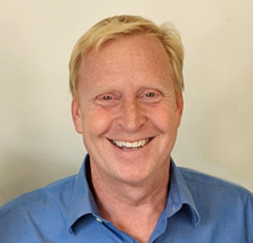 Charlie Szoradi is the President of The Agrarian Group, LLC (TAG), where he provides multiple decades of hands-on experience and insight across sustainability and next-generation agriculture. Prior to joining TAG in 2021, Charlie served as the Chief Technology Officer (CTO) of three interconnected sibling companies that focus on safe and efficient buildings as well as next-generation technologies respectively for LED grow lights, HVAC energy optimization, and indoor air quality to ensure the health and safety of humans and plants.
Charlie Szoradi is the President of The Agrarian Group, LLC (TAG), where he provides multiple decades of hands-on experience and insight across sustainability and next-generation agriculture. Prior to joining TAG in 2021, Charlie served as the Chief Technology Officer (CTO) of three interconnected sibling companies that focus on safe and efficient buildings as well as next-generation technologies respectively for LED grow lights, HVAC energy optimization, and indoor air quality to ensure the health and safety of humans and plants.Independence LED Lighting – American Made Lighting
Energy Intelligence Center – Heating, Ventilation, and Air Conditioning efficiency
Purge Virus (now rebranded as IAQ Technologies) – Indoor Air Quality
Over the course of his career, Charlie has filed multiple patents including a building system of tenon engaging edge connecting members for modular construction, a light engine device with direct to linear system drivers for building and indoor farm illumination, and an ultraviolet-c germicidal LED strip kit for HVAC systems to improve air quality for humans as well as plants to thrive in indoor operations.
Charlie is a LEED AP (Leadership in Energy and Environmental Design – Accredited Professional), a Certified Building Performance Institute (BPI) Energy Auditor, and the Leadership Council Chairman of the American LED Alliance. In 2007, Charlie founded and ran GREENandSAVE, a leading efficiency resource focusing on Return on Investment (ROI), that was one of the finalists of the Sustainability Awards. With GREENandSAVE, Charlie was one of the founding signers of the B-Corp Declaration of Interdependence. In 2009, Charlie was elected to the Board of the Sustainable Business Network and selected as a member of the Green Economy Task Force, with direct participation on the Capitol Hill Delegation. In 2011, Charlie won the Green Business of the Year Award by the Main Line Chamber of Commerce. He has been passionate about food desert relief, and in 2012, Charlie founded the First Light Project (www.FirstLightProject.org). The 501(c)(3) philanthropy focuses on building a network of neighborhood vertical farms and a workforce of 21st-century urban farmers. In 2013, Charlie’s Independence LED won the Best Lighting Retrofit by the U.S. Green Building Council for the Urban Green Award.
Over the past six years, Charlie has developed Controlled Environment Agriculture (CEA) solutions for growers ranging from the producers of lettuce and basil to microgreens and hemp (Envista Farms, Molly Grubb Farms, Hydroponic Life). He has also been the lead developer of the CEA plans for the following:
Philadelphia Zoo - The first zoo in the U.S. with onsite shipping container farming to feed the herbivore primates and other animals leafy greens with advanced sensors and IoT included in the final implementation.
Conestoga High School - S.T.E.M. education through light-emitting diode (LED) grow lights.
Pennsylvania Farm Show - Aquaponic showcase with combination fish and vegetable production.
Penn State University - Custom wavelength modulating grow lights for the Agricultural Studies program.
Taproot Kitchen - Development of indoor farming for this non-profit that incorporates fresh food and education for people with autism and intellectual disabilities.
NASA - Development of a Perpetual Food Machine for Mars colonization with fish effluence, nitrifying bacteria, leafy greens and renewable direct current microgrid power, presented at Kennedy Space Center.
Charlie holds a Bachelor of Science in Architecture from the University of Virginia, and he earned his Masters of Architecture from the University of Pennsylvania with his 1993 thesis on “Eco-Humanism”.
Expanded bio and prior speaking engagementsFounder – Mid-Atlantic based hydroponic Farming business.
Founded in 2015, Envista Farms is a regional hydroponic farming company expanding throughout the Mid-Atlantic & Northeast. Envista started in Pennsylvania & expanded to Anne Arundel County in MD. Envista is a grower of fresh herbs & vegetables that are sold to distributors and in grocery stores in the Mid-Atlantic region.
She recently started the SMART agriculture Program at the Natural Sciences Department with the overarching goal to develop a pathway for BSU Biology majors that leads to careers in food and agricultural sectors as well as graduate programs. SMART Agriculture infuses Hydroponic and/ or Aquaponics technology into Plant Science curriculum, for the production of Super foods. Dr. Osano, has many years of University teaching experience. As a teacher she has mentored numerous number of students in research. Her excellence in teaching pursuit and her teaching philosophy embraces the role of STEM Undergraduate research as a high-impact educational practice for achieving excellence in liberal education. She is the Director of Federally funded Global Engagement and International Research Experience for Undergraduates which supports twenty-eight (28) both undergraduate and undergraduate students from across the nation, annually for research experience in Kenya(Africa) in collaboration with University of Nairobi and Egerton University collaborators who are renowned world class researchers and scientists. Her major community service initiative to the community, Food Day symposium, which she started in 2011 has had a tremendous impact in the Prince Georges Community and beyond. Food Day is aimed at promoting healthy, sustainable, affordable, and just food systems in America. The symposia, hosted annually for the last eight years have included a number of partners such as the US Department of Agriculture, the Prince George’s County Public School System, Prince George’s Food Equity Council, Partnership to Cut Hunger and Poverty in Africa; Environmental Protection Urgency, (EPA) and Maryland Department of Environment. The symposia typically host 150 to 200 guests for a day of exciting activities featuring guest speakers, live television coverage; a luncheon with a keynote speaker; and scholarly presentations from Research Scientists from Government and Academia, students and faculty and in-depth discussions among participants towards solutions to the food issues facing us regionally, nationally and globally. These activities are televised on Bowie State University’s television throughout the year. The ice on the cake of these activities is the live TV cooking shows by BSU food service providers. Dr Osano serves as a grant proposal panel reviewer for Federal Urgencies; she also serves in various committees and advisory boards both at the county, university and international level. She serves and Collaborates with the University Food Advisory Committee, Prince Georges Food Equity Council, Prince Georges Environment, Agriculture and Natural Resources(EANR) Advisory committee and Envista Farms; Schaefer Global Management LLC among many. Internationally she is a member of Academic Council of Pan African Christian University in Kenya. She has many Collaborations Agreements both locally and International including US department of Agriculture, University of Nairobi, Egerton University and Pan African University. She is a member of many Professional bodies including American Society of Plant Biologists (ASPB) and Minorities in Agriculture, Natural Resources, and Related Sciences (MANRRS). Last but not least, she works along her husband Rev Eng. Peter Osano as a co-pastor of Life Source Church for All Nations, church without walls where she supports those with spiritual needs.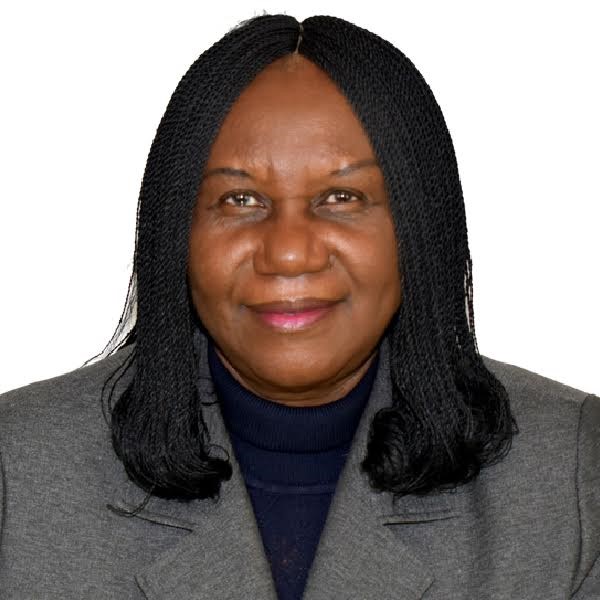 Dr Osano is a Professor of Biology, Natural Sciences Department, Bowie State University in Maryland with a Ph.D. degree in Plant Science (Botany) from University of Nairobi, Kenya. She has distinguished herself as an exceptional teacher, researcher and leader. As a scholar, Dr Osano has received and managed more than $3 million federal grants, including research awards from National Science Foundation, US Department of Agriculture, US Environmental Protection Agency and National Aeronautics Administration Agency (NASA). She heads the Plant metabolomics, Aquaponics and Hydroponics laboratory. Her research focus uses Metabolomics and Elicitation approaches for the enhancement of metabolite richness of fruits and vegetables to address Food Security and the production of super crops. She is also interested in the Intersection of climate, food security/sovereignty, and microbiomes.
Dr Osano is a Professor of Biology, Natural Sciences Department, Bowie State University in Maryland with a Ph.D. degree in Plant Science (Botany) from University of Nairobi, Kenya. She has distinguished herself as an exceptional teacher, researcher and leader. As a scholar, Dr Osano has received and managed more than $3 million federal grants, including research awards from National Science Foundation, US Department of Agriculture, US Environmental Protection Agency and National Aeronautics Administration Agency (NASA). She heads the Plant metabolomics, Aquaponics and Hydroponics laboratory. Her research focus uses Metabolomics and Elicitation approaches for the enhancement of metabolite richness of fruits and vegetables to address Food Security and the production of super crops. She is also interested in the Intersection of climate, food security/sovereignty, and microbiomes. Dr. Supriyo Ray joined the Natural Sciences department at Bowie State University in the fall of 2019. Prior to joining Bowie State, Dr. Ray worked at the at the University of Texas at El Paso (UTEP), University of California San Diego, CA, Salk Institute for Biological Studies, CA and National Institute of Malaria Research, India. He holds a doctoral degree in Biomedical Sciences and a master’s degree in Microbiology & Molecular Biology from University of Central Florida (UCF), Fl, and a master’s degree in Biotechnology (Plants) from India. He has a double major in Zoology and Chemistry with a minor in Botany from India. His lab studies small RNA especially microRNAs (miRNAs) in plants. His research focuses on developing comprehensive miRNA library for plants that are poorly characterized such as Bananas (Musa sp.) in collaboration with Dr. Ude’s lab and Kale (Brassica o.) in collaboration with Dr. Osano’s lab. miRNAs are known to regulate various metabolic processes in plants, and play critical role during their developmental phase and in responding to biotic and abiotic stressors. His lab is also exploring therapeutic potential of plant metabolites such as alkaloids and terpenoids and establishing them as novel drugs against bacterial and amoebic pathogens. Dr. Ray’s lab is also studying nano-agrochemicals as an alternative to present day fertilizers and also exploring alternate plant nutrient delivery systems. This will be advantageous due to their small size providing large surface area and high productivity. Most importantly, it would lead to drastic reduction in application minimizing loss to the surrounding environment in the form of pollutants. Apart from research, Dr. Ray is passionate about experiential learning and using High Impact Teaching (HIT) practices such as CUREs and Problem Based Learning (PBL) for teaching undergraduate courses.
Dr. Supriyo Ray joined the Natural Sciences department at Bowie State University in the fall of 2019. Prior to joining Bowie State, Dr. Ray worked at the at the University of Texas at El Paso (UTEP), University of California San Diego, CA, Salk Institute for Biological Studies, CA and National Institute of Malaria Research, India. He holds a doctoral degree in Biomedical Sciences and a master’s degree in Microbiology & Molecular Biology from University of Central Florida (UCF), Fl, and a master’s degree in Biotechnology (Plants) from India. He has a double major in Zoology and Chemistry with a minor in Botany from India. His lab studies small RNA especially microRNAs (miRNAs) in plants. His research focuses on developing comprehensive miRNA library for plants that are poorly characterized such as Bananas (Musa sp.) in collaboration with Dr. Ude’s lab and Kale (Brassica o.) in collaboration with Dr. Osano’s lab. miRNAs are known to regulate various metabolic processes in plants, and play critical role during their developmental phase and in responding to biotic and abiotic stressors. His lab is also exploring therapeutic potential of plant metabolites such as alkaloids and terpenoids and establishing them as novel drugs against bacterial and amoebic pathogens. Dr. Ray’s lab is also studying nano-agrochemicals as an alternative to present day fertilizers and also exploring alternate plant nutrient delivery systems. This will be advantageous due to their small size providing large surface area and high productivity. Most importantly, it would lead to drastic reduction in application minimizing loss to the surrounding environment in the form of pollutants. Apart from research, Dr. Ray is passionate about experiential learning and using High Impact Teaching (HIT) practices such as CUREs and Problem Based Learning (PBL) for teaching undergraduate courses.
Event Features
- Exhibitors showcase
- Student poster exhibit competition
- Live cooking demonstration
- Scrumptious foods
- Panel discussion
- Greenhouse tour
Exhibitors
Interested in being an exhibitor at the event? Contact Dr. Anne Osano, aosano@bowiestate.edu for more information.
Our Partners
Jointly convened by Bowie State University’s College of Arts and Sciences' Department of Natural Sciences, in collaboration with the Alliance for Chesapeake Bay, BSU C4 committee, Aladdin Campus Dining Services and Bowie State University’s Dining Services.
